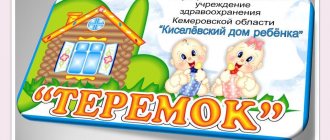Article:
High rates of development of modern society, intensive expansion of the information space, the need for integration into the global educational community, the rapid growth of the implementation of modern technical educational institutions, as well as the new Federal Law of the Russian Federation “On Education in the Russian Federation” No. 273-FZ of September 1, 2013. require a new understanding of the term “professional competence” of a speech therapist teacher.
In the course of reforming the education system in Russia, the problem of updating, revising the content and technologies of training specialists for various fields of activity is becoming more urgent. Currently, the professional and pedagogical formation of a future teacher, including a speech therapist, is considered through the concept of “professional” or “professional and pedagogical competence” .
In this regard, the question arises: “What set of professional and personal qualities does a speech therapist need to have that guarantee social mobility and professional success?” In order to answer it, you need to understand what “professional competence” in general and what needs to be done to increase its level among specialists.
The word “competence” comes from the Latin “competere”, which means “to achieve, correspond, fit.”
In dictionaries and scientific literature, “competence” is explained in different ways:
- knowledge, skills, experience, theoretical and applied readiness to use knowledge
- a range of topics in which someone is knowledgeable
- a set of issues in which a given subject has knowledge and experience of his own activities.
Competence includes a set of interrelated personality qualities (knowledge, abilities, skills, methods of activity), specified in relation to a certain range of objects and processes and necessary for high-quality productive activity in relation to them.
Competence is a real mastery of methods, means of activity, the ability to cope with assigned tasks, this is a form of combination of knowledge, skills and abilities that allows you to set and achieve goals for transforming the environment.
According to I.A. Zimnyaya’s definition, competencies are some internal, potential psychological new formations, which are then identified in a person’s competencies - a personal characteristic that manifests itself only in professional activity.
There are many definitions of professional competence, in our opinion, all of them can be combined in this formulation, so, “professional competence” is a characteristic that reflects the business and personal qualities of a specialist, reflects the level of knowledge, skills, experience sufficient to achieve goals in a certain type of professional activity, as well as the moral position of a specialist.
From the definition it becomes clear that the main link here is the personality of the specialist. According to Columbia University professor M. Green, it is not enough for a teacher to have only theoretical training. The teacher-speech therapist is involved in the process of teaching children as an individual, “... everything that happens in a group of children bears the imprint of his presence, his mood and external behavior, expectations and explanations, his reactions towards children . Therefore, it is so important to determine those personal and professional qualities that are necessary for successful interaction with children - speech pathologists.
Researcher R. Burns highlights the personal qualities of a teacher-speech therapist:
- the desire for maximum flexibility;
- the ability to give a personal touch to the educational process;
- mastery of a style of informal communication with children, warm, emotional relationships with students, showing sympathy for them, and the ability to take their needs into account. Indifferent, sarcastic people are contraindicated in kindergarten. They undermine cognitive activity, fetter the creative powers of children and their potential, and negatively affect the self-esteem of pupils.
We can also highlight psychological criteria of professionalism:
- objective criteria. A teacher-speech therapist must meet professional requirements (high labor productivity, achieving a certain status in the profession, the ability to solve various tasks of teaching and education);
- subjective criteria. To what extent does the profession correspond to a person’s requirements, his inclinations (a positive attitude towards himself as a professional, the presence of professional qualities);
- effective criteria determine the extent to which a teacher-speech therapist has achieved in his work the results desired by society (positive results of correctional work);
- the procedural criterion evaluates how effectively the teacher introduces innovative pedagogical and information technologies into the organization of prevention, diagnosis and correction of speech development disorders in children;
- normative - determines the assimilation of norms, rules, and standards of the profession, which are expressed in the mastery of methodological means, forms of education and training, and communication norms; • individual – variable criteria evaluates the degree to which one’s individuality is introduced into the educational process;
- prognostic criteria determine the growth prospects of a teacher-speech therapist;
- criteria for professional learning, which consists in accepting the advanced pedagogical experience of other teachers, integrating it into one’s own established system of working with children - speech pathologists;
- the criteria for social activity and competitiveness of a profession in society are determined by the ability to attract interest in one’s experience, to convince of the significance of the results of one’s work, and to find internal reserves in the profession itself;
- the criteria for professional commitment is to maintain honor and dignity in the profession;
- qualitative and quantitative criteria – participation in professional tests.
Thus, the core of professional development is the dynamic process of forming professional competence as an integrative property of a professional: a set of knowledge, emotional, value, and personal qualities that allows one to be effective at work, achieve productive results and self-development through the means of the profession.
In connection with the above, we can highlight areas that will help the teacher-speech therapist set goals and formulate tasks in the annual self-development plan to improve professional competence and skill.
- Deepening scientific knowledge. This direction is generated by the shortcomings of university training, the detachment of theoretical training from their practical application. The other side of this issue: scientific thought is constantly developing, and a speech therapist, regardless of his experience, must master the new content of the correction process, without waiting for corrections from above. It is necessary to motivate and stimulate such activities of a specialist.
- Increasing the psychological and pedagogical level. In psychology and pedagogy, teachers and speech therapists have different training. New technologies are emerging and those in use are being modernized. Therefore, specialists must systematically update their knowledge in these areas. A competent speech therapist who actively uses psychological skills in his work will be able to organize a psychologically comfortable environment for correctional work with children, which will not only increase the effectiveness of speech therapy work, but will also contribute to the effective socialization of children in preschool educational institutions.
- Increasing the scientific and methodological level. This direction will be in demand even if the university begins to graduate all students with honors . Every year new developments are proposed or old ones are improved. When starting to use these correctional programs and techniques in their ongoing work, any specialist will encounter difficulties in their application and implementation, which is why speech therapists need the constant help of methodologists.
- Formation of professionally significant skills and abilities. The task is eternal and relevant. In preschool educational institutions, you can also meet an elderly speech therapist who does not know how to plan classes, is not able to clearly explain the material, and pays attention only to certain areas of the speech therapy work system. Often they concentrate their attention only on correcting sound pronunciation, completely losing sight of the prevention of dysgraphia and dyslexia, work on phonemic perception, etc.
- Mastering the culture of pedagogical communication. Business etiquette must be followed by a representative of any profession. His skills are formed in real professional activities. Contrary to this, in preschool educational institutions today there are many teachers who treat children rudely and insult them.
- Developing the ability to work in a team. In preschool educational institutions, this skill takes on special importance. The effectiveness of the correction process directly depends on how interested the teacher is in the productivity of partners, on the ability to make decisions of the team as their own, and to participate in the activities of pedagogical consultations. Only full interaction of all participants in the correction process can ensure the best result.
- Mastering corporate norms of behavior. The teacher is a role model. His very behavior is a means of education. Parents of students also react to his style of behavior - they accept, replicate or reject it. The activities of a teacher are an object of interest to many people and organizations (parents, education administration, public organizations, law enforcement agencies). The authority of a teacher depends on compliance with certain corporate rules - for example, on the confidentiality of information about his personal life.
- Mastering a competent speaking style. Considering that the leading direction of activity of a preschool teacher-speech therapist is the correction of speech defects and the prevention of writing and reading disorders during schooling, to ensure this main task, the presence of a high level of communicative culture in the teacher-speech therapist, considered as a unity of value structures in the form of culture of speech, culture of verbal communication, emotional culture, culture of thinking, culture of interaction and mutual understanding and acting as a condition and result of personal and professional growth.
- Increase legal literacy. In the context of reforming the education system and increasing the legally literate population, increase your knowledge in legal matters. Regularly monitor the emergence of new regulatory documents, carefully study and analyze them, know new laws and regulations affecting the field of education. To be guided in practical activities by the rights vested in a specialist of a preschool organization, as well as to fulfill the duties prescribed by the new legislation of the Russian Federation. Unfortunately, at present, insufficient attention is paid to this issue, which increasingly leads to conflict situations between the speech therapist and various authorities, including the parents of the students (preparing documents for passing the TMPK, informing parents about the need to seek help from other specialists , including medical, etc.).
- Exchange of experience with colleagues. Neither theoretical knowledge nor one’s own practice can sometimes provide such useful experience as exchanging information with colleagues. Each specialist has his own best practices and “tricks ,” the exchange of which can increase the effectiveness of correctional work. An excellent form of implementation of this direction is methodological associations.
- Studying, mastering information, as well as introducing integration into the practice of correctional education and, as one of the forms of its implementation, inclusive education of children with disabilities. A speech therapist teacher must be aware of and ready to include new categories of people with disabilities in the correctional educational environment (children with severe motor pathology, Down syndrome, childhood autism syndrome, profound intellectual disabilities, complex disabilities).
- Application of new technical means and computer technologies in work. As the philosopher said, everything flows, everything changes. The world around us is changing. Agree, using such means as cinema and a slide projector in your work is at least not advisable. Therefore, it is very important for a teacher to keep up with the times and use new TSO and ICT in their work in order to increase children’s interest in speech therapy classes and increase their effectiveness. However, the insufficient equipment of most preschool educational institutions with the material and technical base does not allow the full implementation of this direction.
In conclusion, I would like to note that the profession of a teacher-speech therapist requires constant work on the formation and improvement of professional competence and the improvement of personal qualities.
It is important to remember that only the orientation of the speech therapist teacher to constantly replenish knowledge, mastery of advanced methods and techniques of working with children, and comprehension of the secrets of communication contribute to the formation of the personality of the speech therapist teacher as a professionally competent, successful, competitive specialist in the educational space of preschool childhood.
General recommendations
The goal of any application
is to arouse the employer's interest and obtain the desired position. Therefore, when filling out a resume for the position of a speech therapist, it is important to pay attention to confirmation of professional competence.
Since the work of a defectologist involves constant communication with people, the photo on the CV must be selected in an appropriate style. It is recommended to choose a business or professional portrait photo of the applicant against a neutral background.
Many people believe that indicating the desired salary level is not mandatory. But when drawing up this form, voicing the salary level still won’t hurt. This will at least help you avoid receiving inappropriate offers.
When indicating the desired income, market realities should be taken into account.
Write an amount that is 20% more than your current monthly income. Thanks to this trick, the damage to your own interests will be minimal, especially if you have to bargain.
Another important aspect is the clarification of specialization
.
Not all speech therapists have the same skills. Some of them specialize in correcting speech defects in children, others work with patients with Down syndrome, and still others work only with adults.
How to fill in contacts in a resume?
When filling out this part of the form, you should enter current data. After posting your resume, you need to constantly monitor messages and incoming calls.
Indicating contacts in popular instant messengers and social networks will help you reach a large audience of employers.
Example of filling out contact information:
- Telephone:
+7 - Email:
- Skype:
/LogopedMyResume
- VK
/logopedmyresume
Disadvantages of being a speech therapist
But you shouldn’t think that speech therapists “roll like cheese in butter” and don’t have any problems. There are also disadvantages to their work. The main disadvantage of the profession of speech therapist is the enormous expenditure of emotional and physical strength. Quite often, a speech therapist also has to act as a psychotherapist, ready not only to listen, but also to empathize.
Another obvious disadvantage of this profession, many speech therapists call the need to maintain a huge amount of various documentation (especially if the specialist works in a government agency). At the same time, “paper” work, as a rule, is not included in the main working hours, which is why specialists have to spend their free time on “writing.”
And most importantly, a speech therapist can never be completely confident in the success of his work, since a lot depends not only on the level of his professionalism, but also on the desire and performance of the “patient” himself.
Skills that have special weight
This section of the resume allows the employer to become familiar with the key skills of a speech pathologist .
Be specific:
this block plays a decisive role in choosing a specific candidate. Unlike other blocks, here the applicant is given the opportunity for self-presentation.
There are no ready-made filling templates.
The speech pathologist can choose specific skills that, in his opinion, are most noteworthy and which will look most advantageous in the general mass of other resumes.
An example of listing the skills of a speech therapist:
| Speech breathing | Speech therapy massage |
| Segmental massage | Phonemic hearing |
| Sensory Integration | Working with patients with Down syndrome |
| Confident PC user | Communication skills |
| Stress resistance | Grammatically correct speech |
What should I write about myself?
This block of the defectologist’s questionnaire should contain a minimum of information. But after reading the “About Me” section, the employer must understand whether he needs just such a specialist.
Write the data to the point:
your personal preferences, hobbies, and leisure activities that
are in no way related to your professional activities will not interest the recruiter
.
It is better to mention the ability to work with speech therapy devices. It would not hurt to indicate your academic degree and qualification categories, if any.
An example about yourself in a resume:
- Speech therapist teacher of the highest qualification category. Candidate of Psychological Sciences. Awarded the badge “Honored Worker of General Education of the Russian Federation” in November 2011.
Advantages of being a speech therapist
It’s not difficult to guess that the main advantage of being a speech therapist is the feeling of being “useful” and being able to help people. However, in addition to the “spiritual” advantages, this profession also has several “material” ones. The latter include:
- the opportunity to conduct private practice and formulate your own pricing policy, which means receiving a high income and a free work schedule;
- large “geography” of employment - speech therapists are in demand in many organizations: schools, kindergartens, clinics, rehabilitation centers, etc.;
- demand – the services of speech therapists will always be needed, so these specialists will never be left without work;
- You can continue working as a speech therapist for as long as the specialist is ready and able to work (that is, there is no such thing as a retirement age for speech therapists).
Where can you become a speech therapist?
MASPC invites you to take professional retraining courses to become a speech therapist. We offer advanced distance education technologies with the issuance of a standard diploma.
.
obtain the profession of a speech therapist at almost any pedagogical university, on the basis of which the department of speech therapy or the faculty of defectology operates. However, it is important to understand that choosing this profession means being prepared for a process of continuous learning - constant advanced training, monitoring and studying the latest methods and techniques for correcting speech defects, self-education in related areas (psychology, medicine, pedagogy, sociology, etc.).
The choice of educational institution largely depends on what goals you are pursuing. If you have chosen the profession of a speech therapist only because you are guaranteed to be able to find a job, then it does not matter which university you choose. If you have set yourself the task of achieving great success in your professional field, and the choice of profession is made at the behest of your soul and heart, then it is best to give preference to leading universities that provide not only a diploma, but also high-quality knowledge.
The best universities in Russia , which have proven themselves well among employers, today include:
- Moscow Pedagogical State University;
- Moscow State Humanitarian University named after. M.A. Sholokhov;
- Russian State Pedagogical University named after. A.I. Herzen;
- Institute of Special Pedagogy and Psychology named after. Raoul Wallenberg;
- Leningrad State University named after. A.S. Pushkin.
Moscow State University named after M.V. Lomonosov (MSU)
Moscow
[31.05.01] Medicine
| Type | Form | Price |
| Bachelor's degree | Full-time | 400 000,00 ₽ |
Kazan (Volga Region) Federal University
Kazan
[31.05.01] Medicine
| Type | Form | Price |
| Bachelor's degree | 315 000,00 ₽ | |
| Bachelor's degree | 169 800,00 ₽ |
Peoples' Friendship University of Russia
Moscow
[31.05.01] Medicine
| Type | Form | Price |
| Bachelor's degree | Full-time | 310 000,00 ₽ |
Moscow State Medical and Dental University named after. A.I. Evdokimov of the Ministry of Health of the Russian Federation
Moscow
[31.05.01] Medicine
| Type | Form | Price |
| Bachelor's degree | Full-time | 290 000,00 ₽ |
St. Petersburg State Medical University named after. Pavlova
Saint Petersburg
[31.05.01] Medicine
| Type | Form | Price |
| Bachelor's degree | Full-time | 245 000,00 ₽ |
| Bachelor's degree | Full-time | 245 000,00 ₽ |
| Bachelor's degree | Full-time | 245 000,00 ₽ |
| Bachelor's degree | Full-time | 245 000,00 ₽ |
Northwestern State Medical University named after I.I. Mechnikov
Saint Petersburg
[31.05.01] Medicine
| Type | Form | Price |
| Bachelor's degree | Full-time | 240 000,00 ₽ |
North-Eastern Federal University named after M.K. Ammosova
Yakutsk
[31.05.01] Medicine
| Type | Form | Price |
| Bachelor's degree | Full-time | 233 000,00 ₽ |
St. Petersburg State Pediatric Medical University
Saint Petersburg
[31.05.01] Medicine
| Type | Form | Price |
| Bachelor's degree | Full-time | 200 000,00 ₽ |
Far Eastern Federal University
Vladivostok
[31.05.01] Medicine
| Type | Form | Price |
| Bachelor's degree | Full-time | 195 000,00 ₽ |
Kazan State Medical University of the Ministry of Health of the Russian Federation
Kazan



